What makes Gen Z unique from other generations? Find out the top Gen Z characteristics across lifestyle, consumer behavior, dining, and careers — and how these behaviors and preferences compare to those of other age groups.
As this generation matures and comes into greater purchasing power, many brands are interested in understanding Gen Z characteristics, traits, interests, and consumer behavior to be able to better market to, recruit and retain, and deliver exceptional customer experiences for this distinct and unique age group.
Who is Generation Z, anyway? What Generation Z characteristics set this age group apart from the rest? What are some key traits, interests, and behavior trends marketers and employers need to understand? These are the questions the Medallia Market Research team set out to answer in our recent research study, Understanding Gen Z.
Our team helps brands understand consumer behavior by leveraging data from credit and debit transactions, smartphone foot traffic data, and a variety of surveys to gather quantitative and qualitative insights in written and video form. Using Medallia Market Research Suite’s external consumer panels to collect information about how decisions are made and uncover consumer behaviors, we were able to unlock key insights into what differentiates Gen Z from other generations in terms of how members of this peer age group self-identify, how they make purchasing decisions, how they complete their shopper journeys, and more.
What is the Gen Z Age Range?
Also known as “Zoomers,” Generation Z encompasses anyone born between the years of the mid-to-late 1990s and the early 2010s. This makes them roughly 10 to 27 years old today. Only older Gen Zers have begun to enter the workforce and come into their own purchasing power, and it’s these consumers, ages 18 to 27, who we surveyed in this study.
Who is Gen Z? (In Their Own Words)
To find out who Gen Z is, we went straight to the source. We asked Gen Z participants to tell us in their own words what makes them feel different from other generations, and our video and text survey takers shared these key characteristics that they say makes this age group different from other cohorts.
- Generation Z sees themselves as being more “emotionally aware,” “more aware of trauma,” and “more accepting,” one participant told us
- “Gen Zers are the first generation to grow up with our current technology, making them more adept and more accustomed to doing things online,” one participant wrote
- “Gen Z tend to be more inclusive and more accepting,” another wrote
- “We are heavily exposed to social media, which makes us more outgoing and eager to voice our opinions,” commented another
- “We’re more outspoken and passionate about the things that are important to us. We care more about breaking the pattern,” another wrote
Top Gen Z Characteristics vs Other Generations
1. Lifestyle
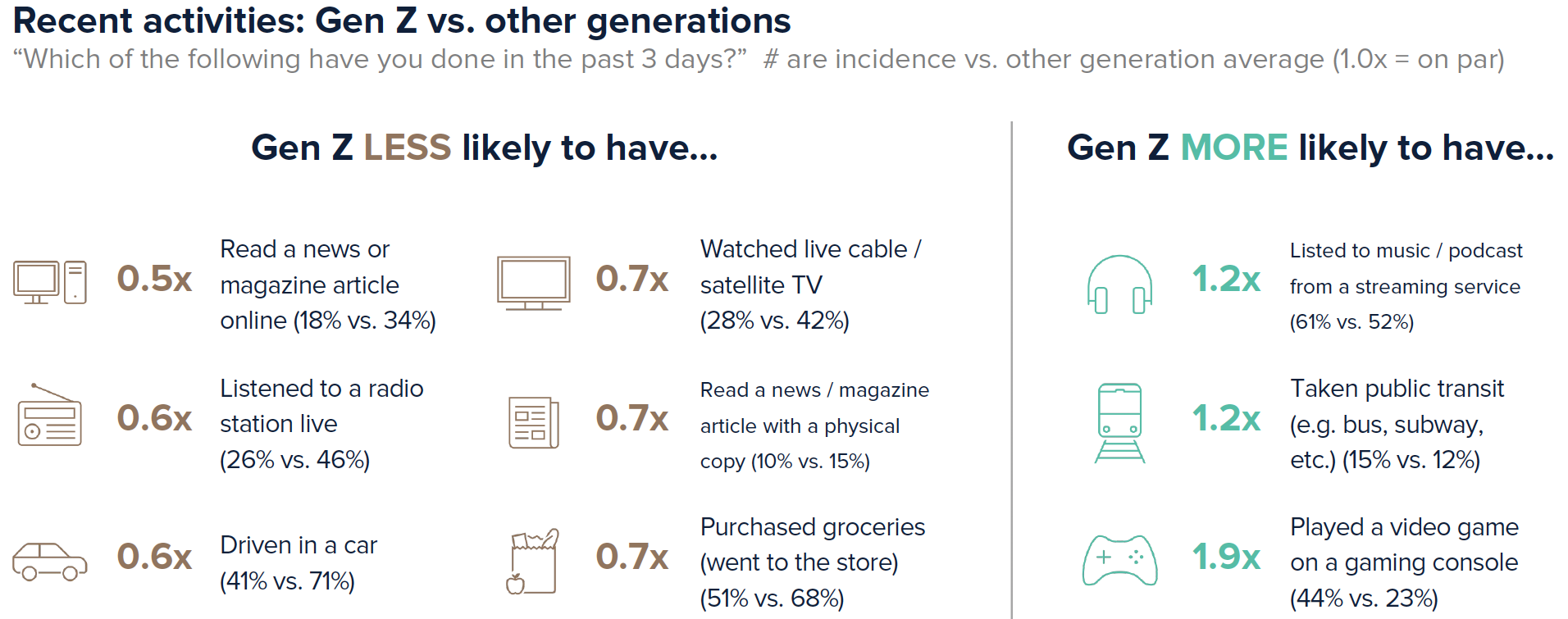
#1: Gen Z is less likely to have consumed traditional media, driven a car, or purchased groceries from a physical store and more likely to have listened to music or a podcast from a streaming service, taken public transportation, or played a video game on a gaming console.
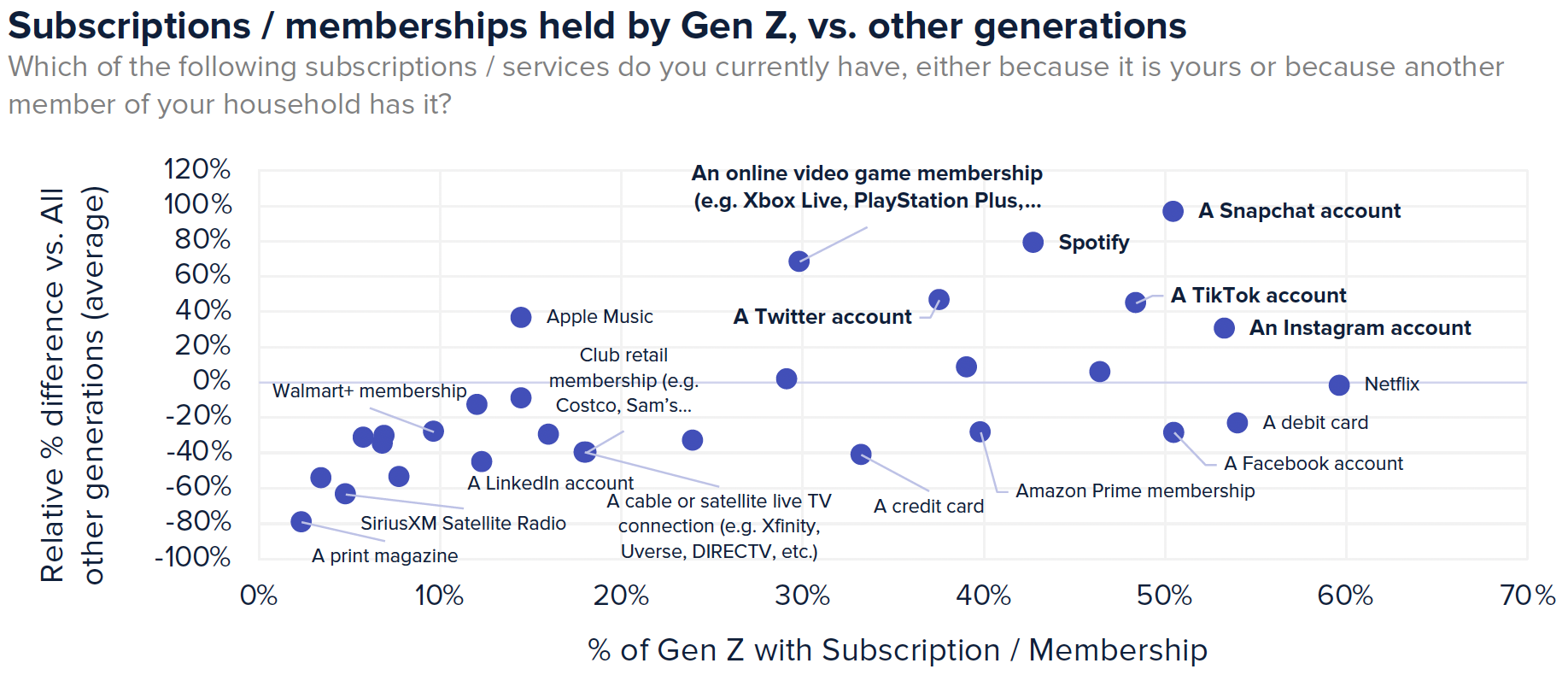
#2: Gen Z is more likely to have an account on social media platforms, like Snapchat and TikTok, but less likely to have one on older social media platforms, like Facebook.
#3: Gen Z is more likely to have a membership on a gaming platform like Xbox Live but less likely to have a paid membership for Amazon Prime or club retailers, like Costco or Sam’s Club.
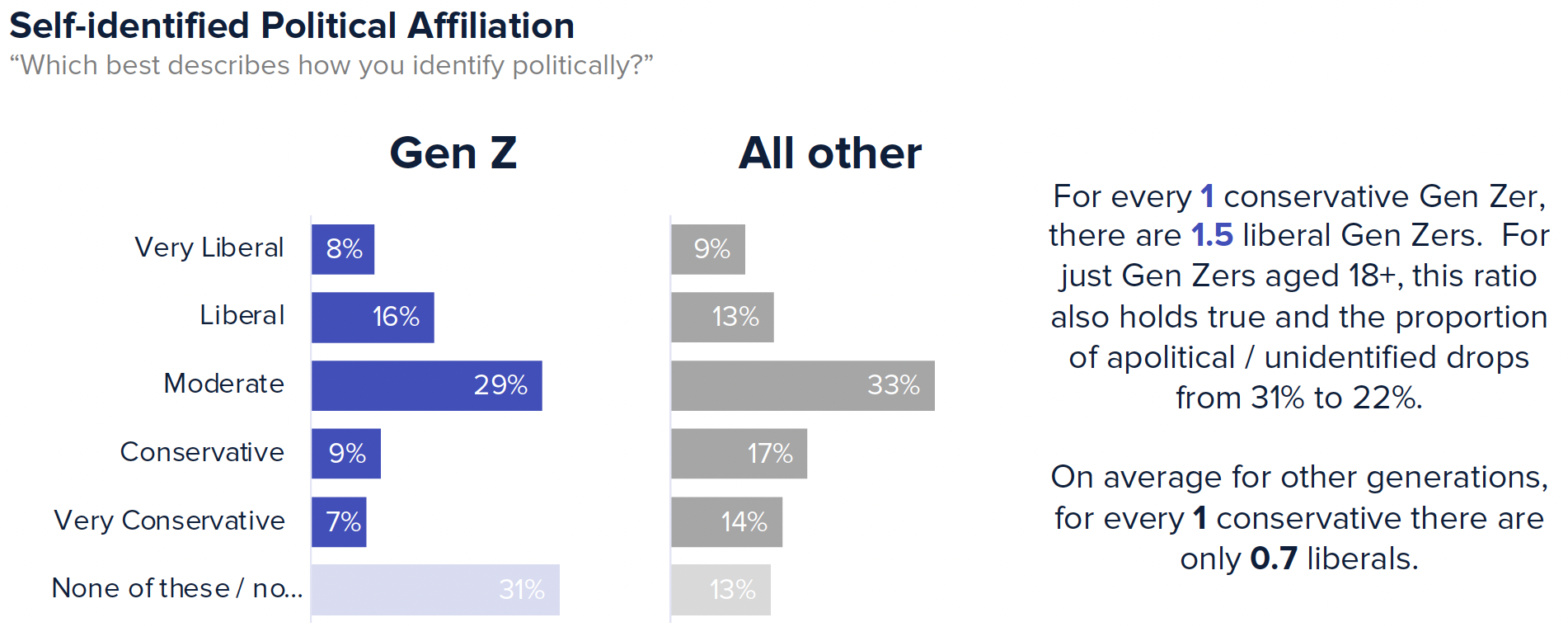
#4: Gen Zers are more liberal than other age groups.
2. Consumer Behavior
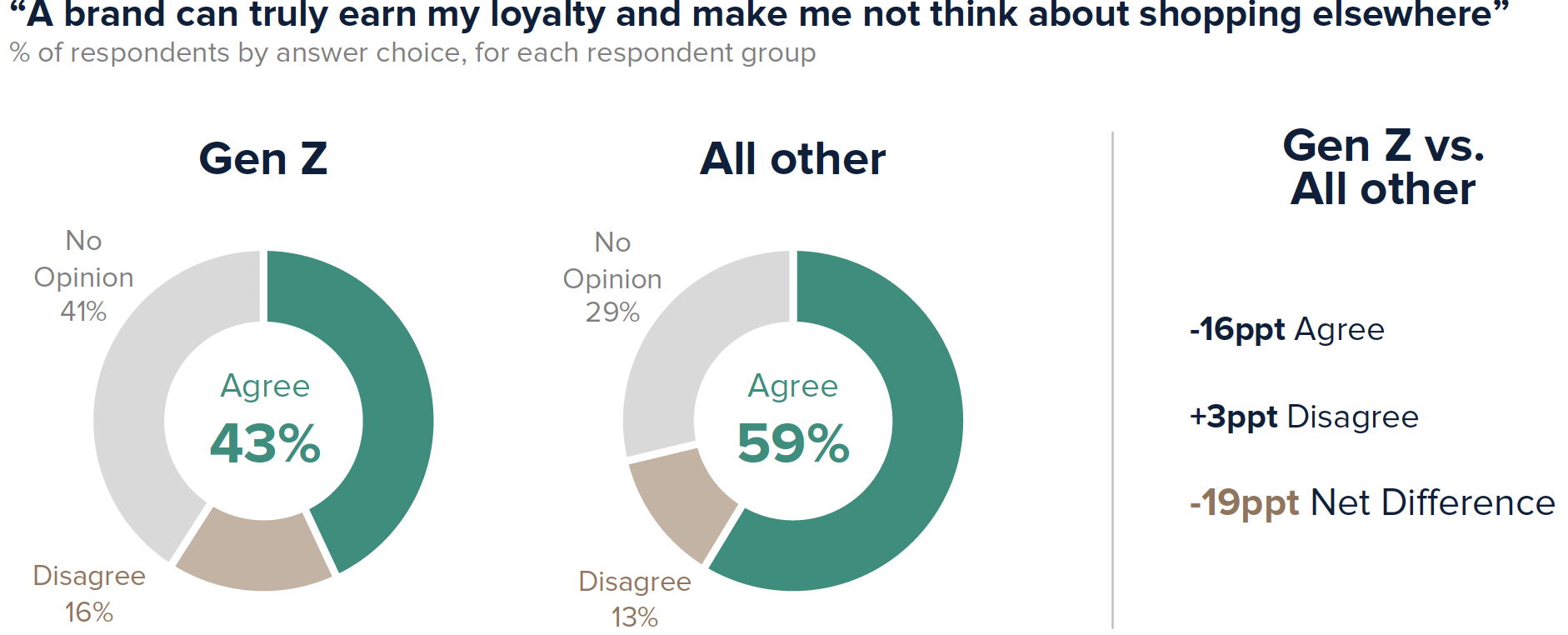
#5: Gen Zers are less likely (by 19 points) to be brand loyalists, compared to other generations.
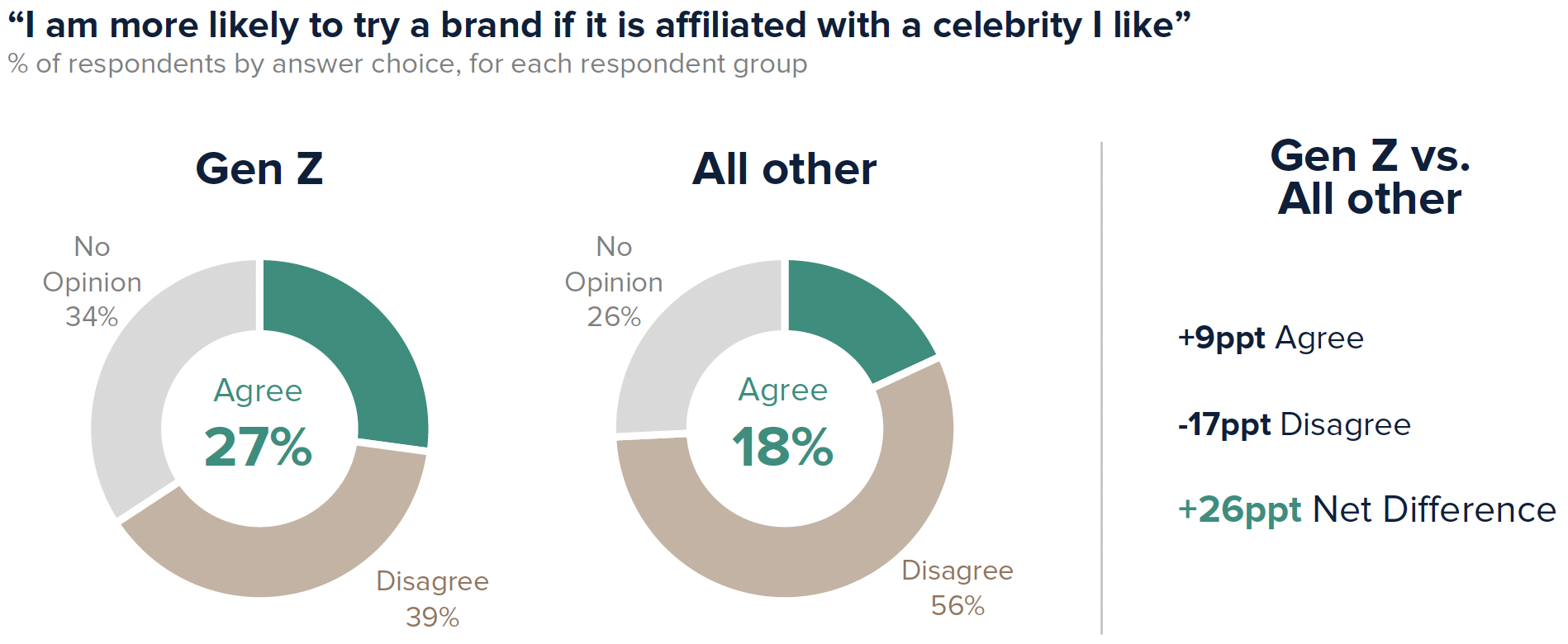
#6: This age group is more likely (by 26 points) to try a brand if it is affiliated with a celebrity they like, compared to other age cohorts.
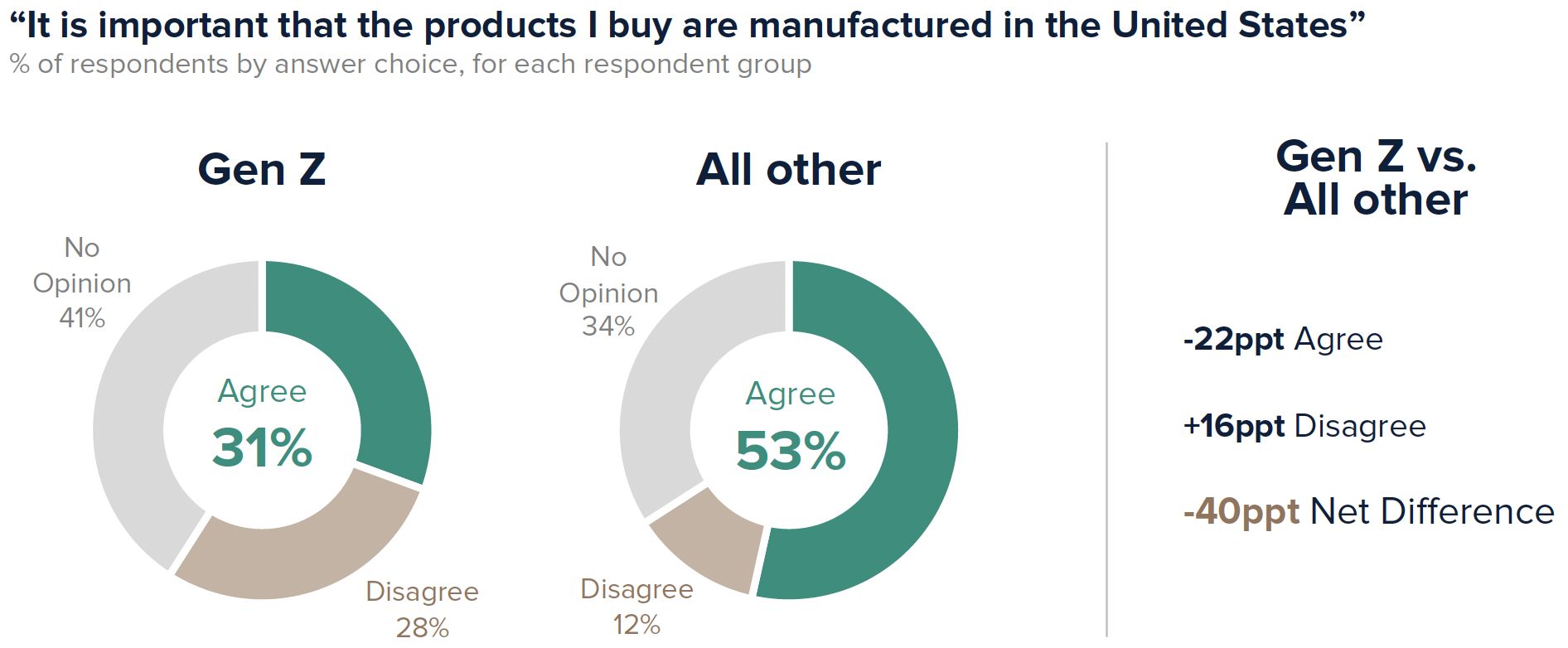
#7: Gen Z is less likely to care if a product is made in the USA.
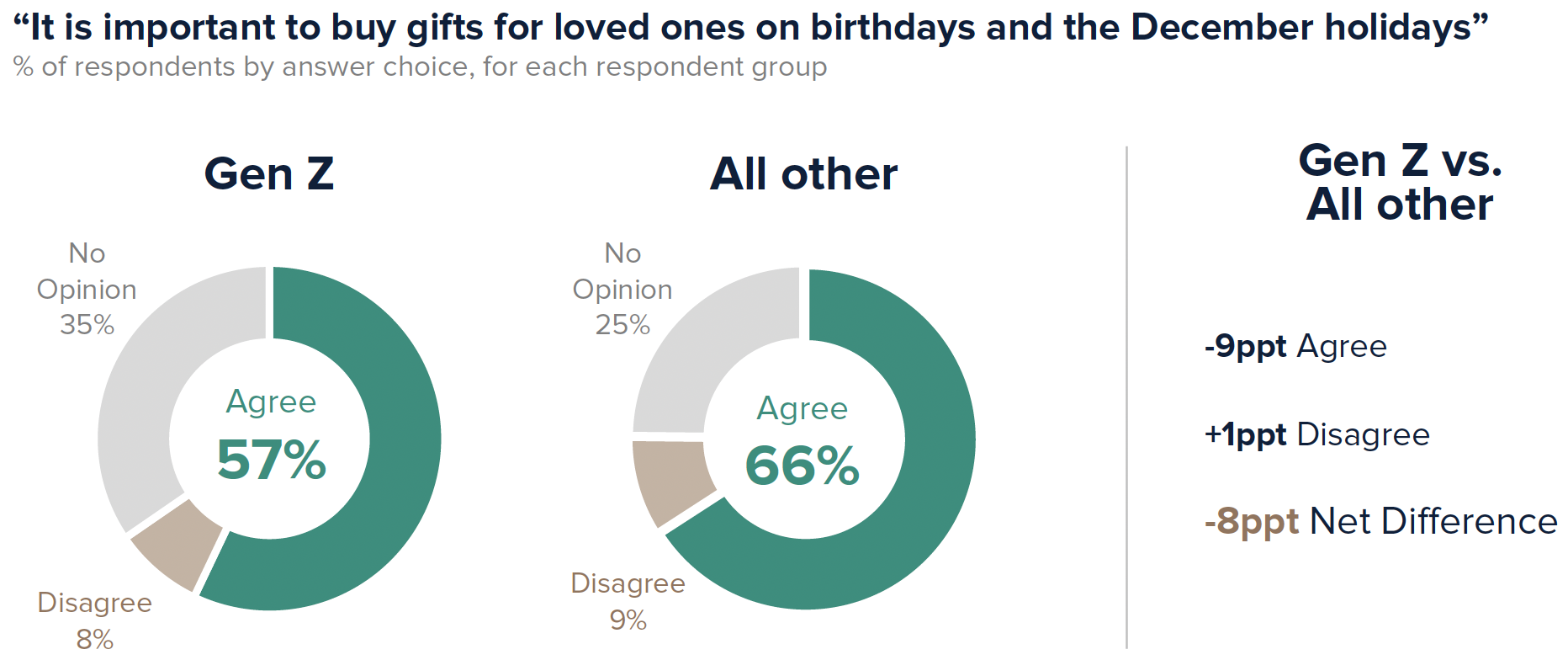
#8: Gen Z is less likely to say buying gifts for birthdays and holidays is important.
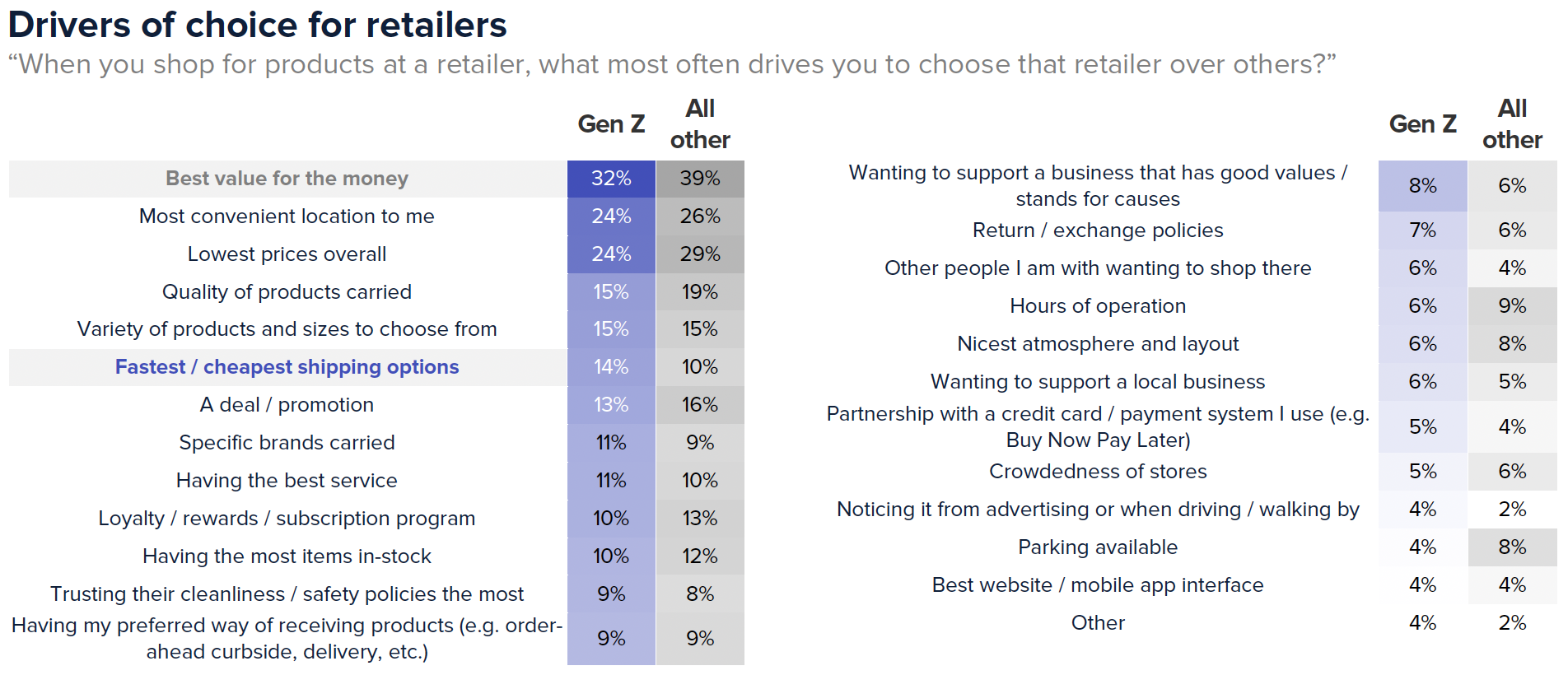
#9: When choosing retailers, fast and cheap shipping options are among Gen Z’s top drivers of choice, more than other age groups.
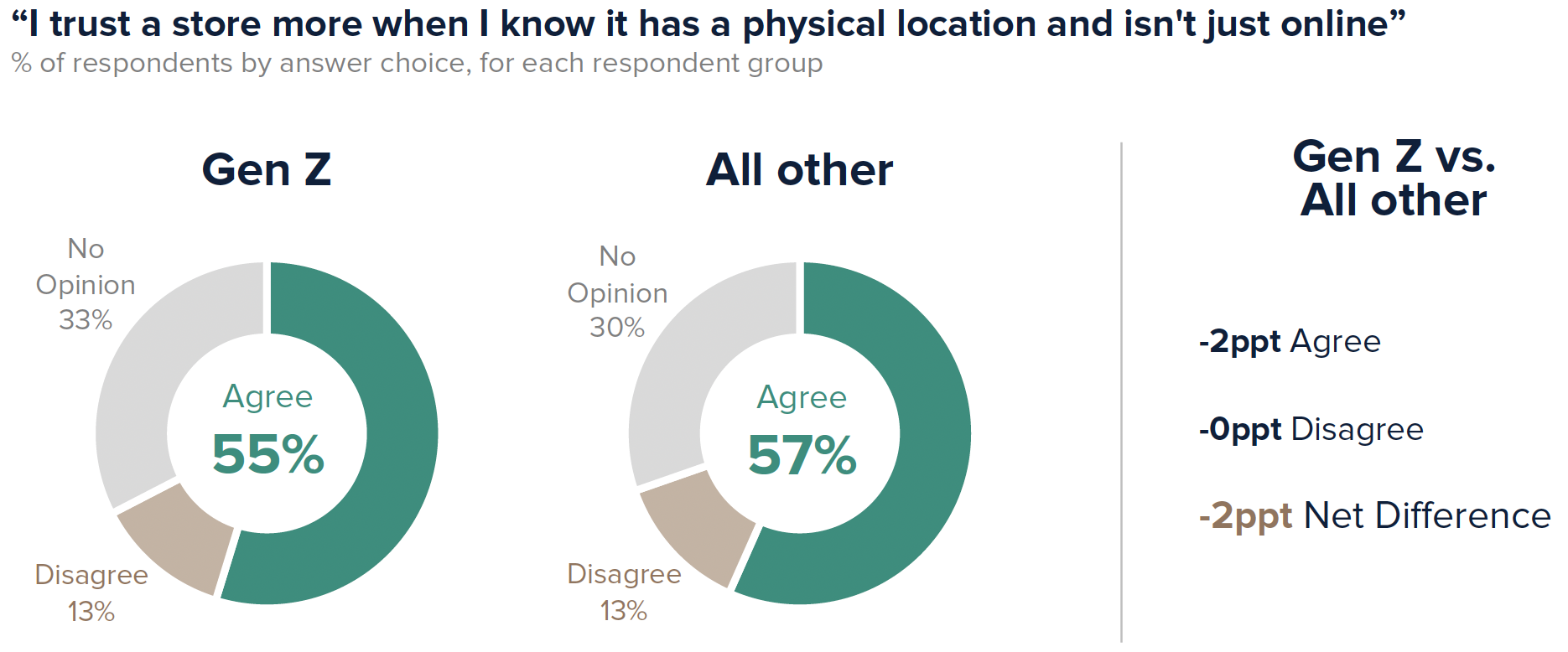
#10: Gen Z is almost equally likely as other generations to trust stores more when they know the brand has a physical presence that isn’t just online.
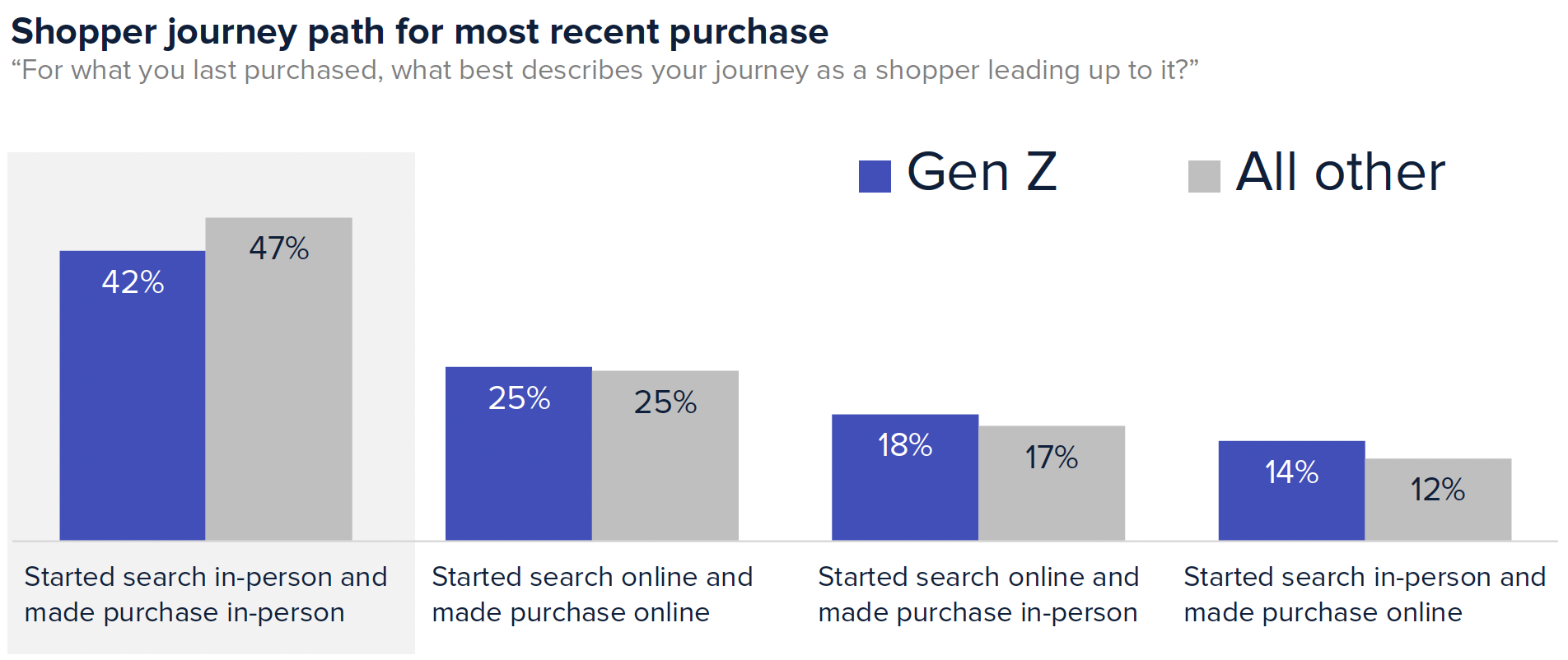
#11: The same as with other generations, Gen Z is most likely to start their shopping journey in person and make their purchase in person, but the Gen Z path is slightly more online or omnichannel.
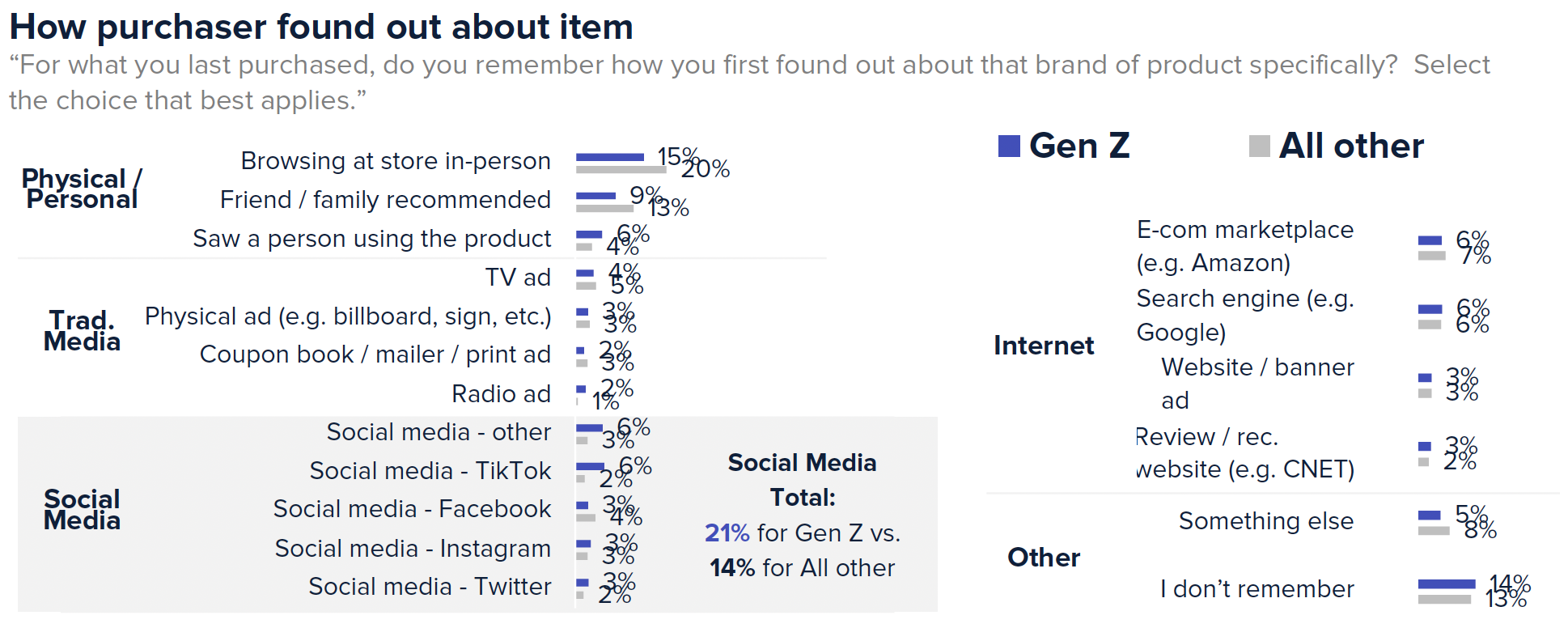
#12: Gen Z is 50% more likely to find out about products via social media and 3x more likely to find out about items from TikTok.
3. Dining
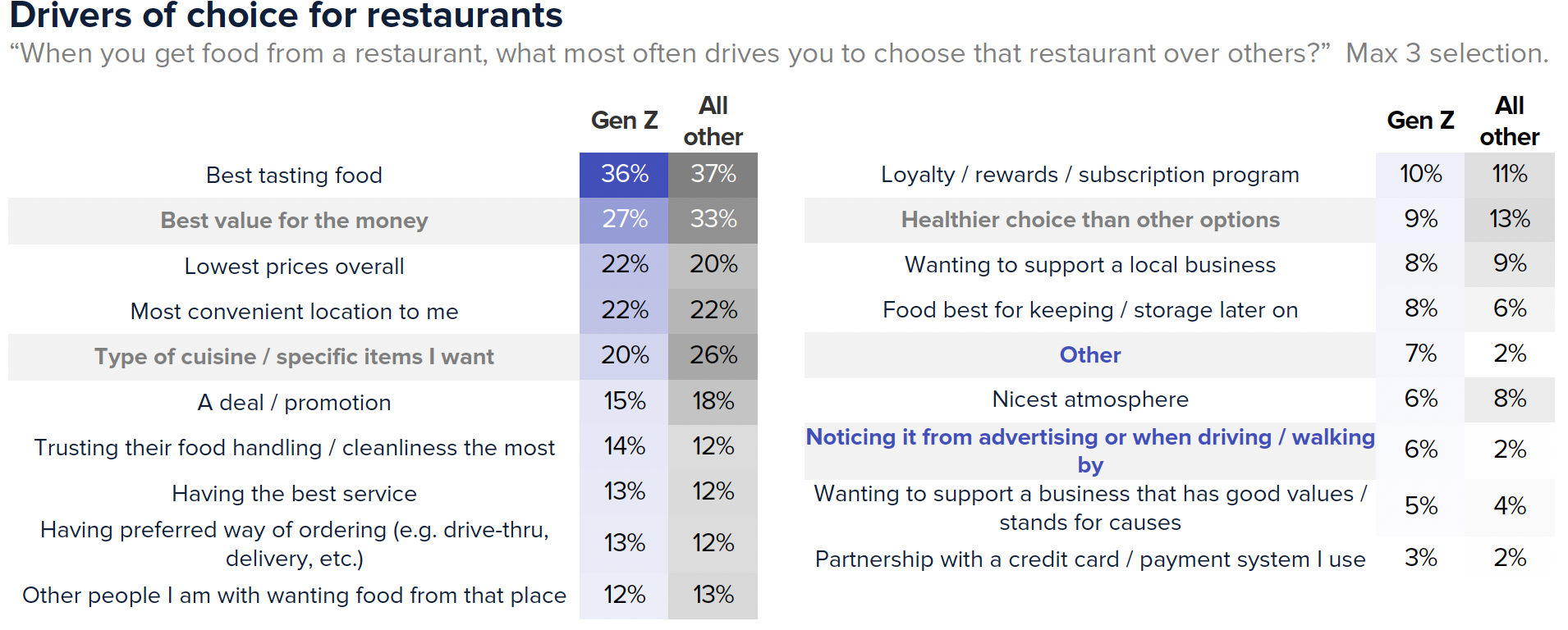
#13: Gen Z reports similar drivers of choice for selecting restaurants to those of other generations.
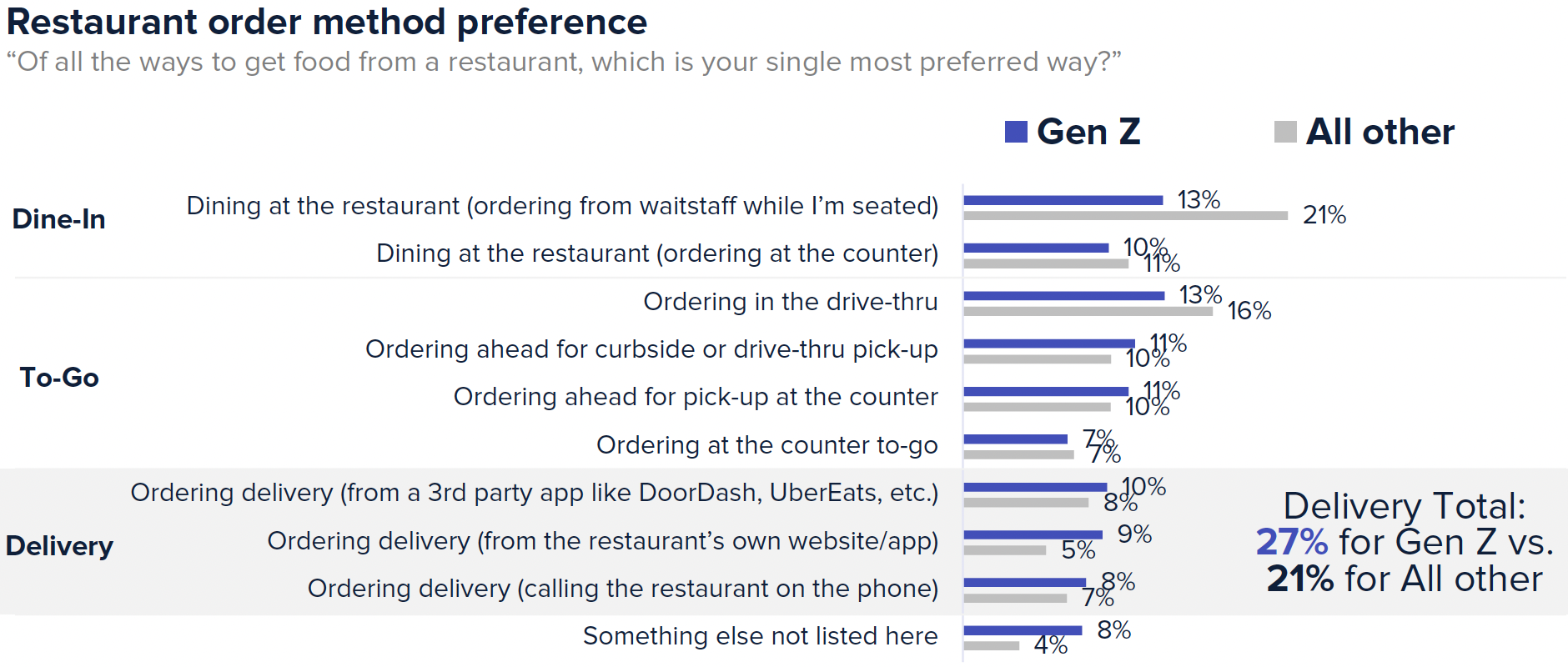
#14: Gen Zers are less likely to dine in at restaurants and more likely to opt for delivery.
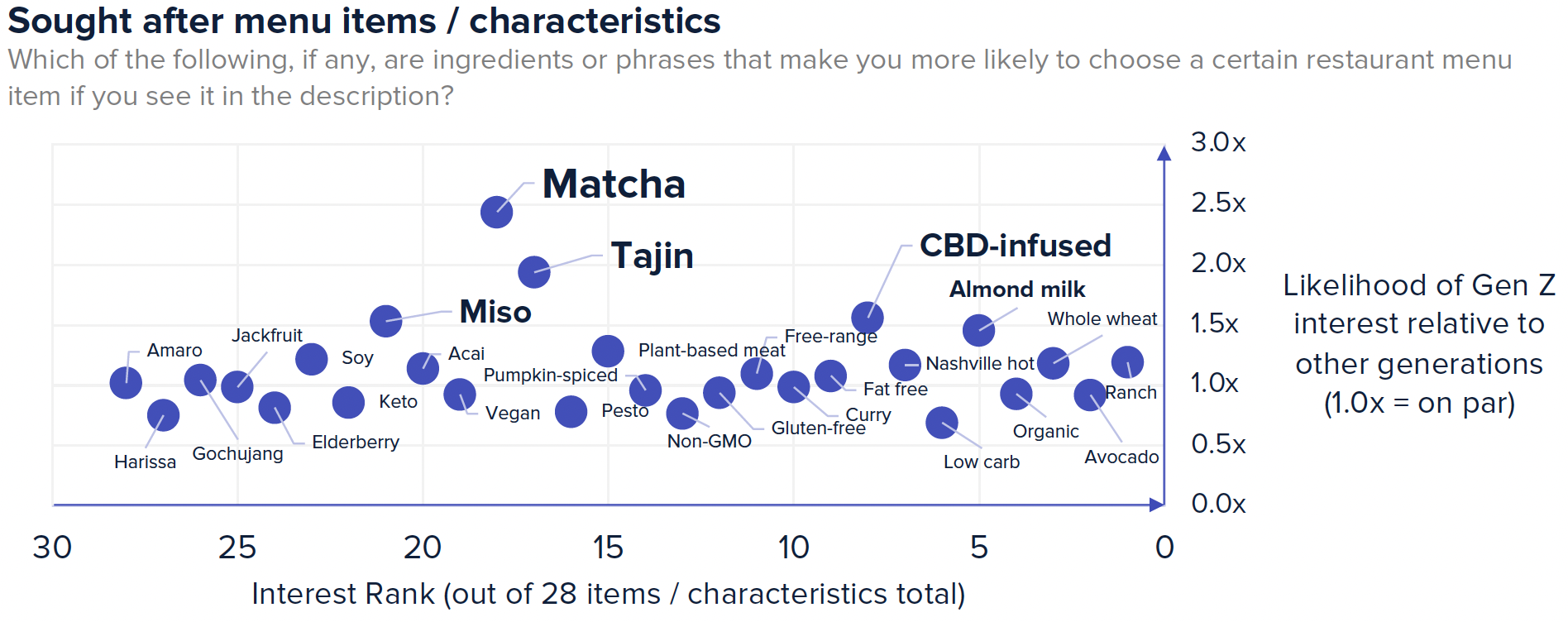
#15: Menu items like matcha, tajin, CBD, and miso are more likely to appeal to Gen Z than other generations.
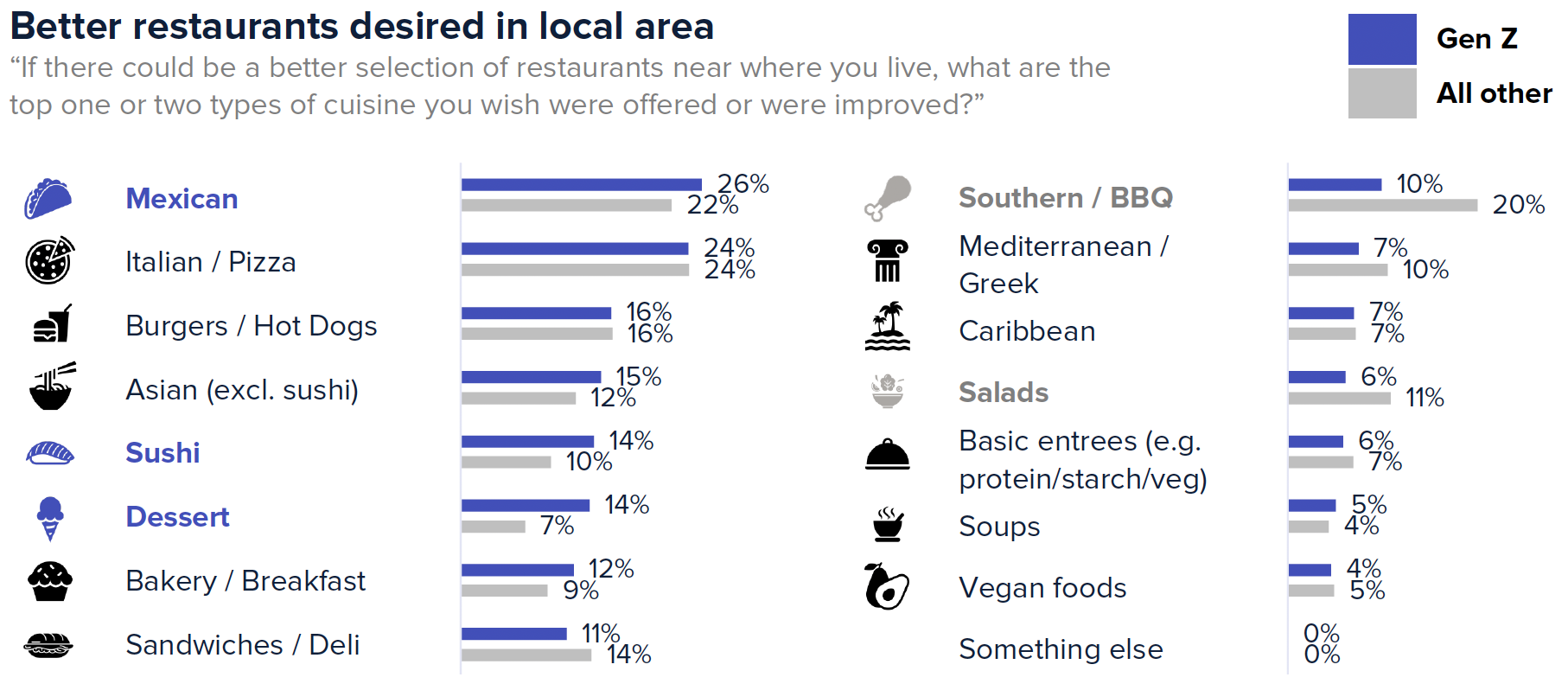
#16: Of the restaurants Gen Z would like to have nearby where they live, they’re more likely than other generations to want better Mexican, sushi, and dessert options and less likely to care about salad and southern/BBQ options.
4. Education and Careers
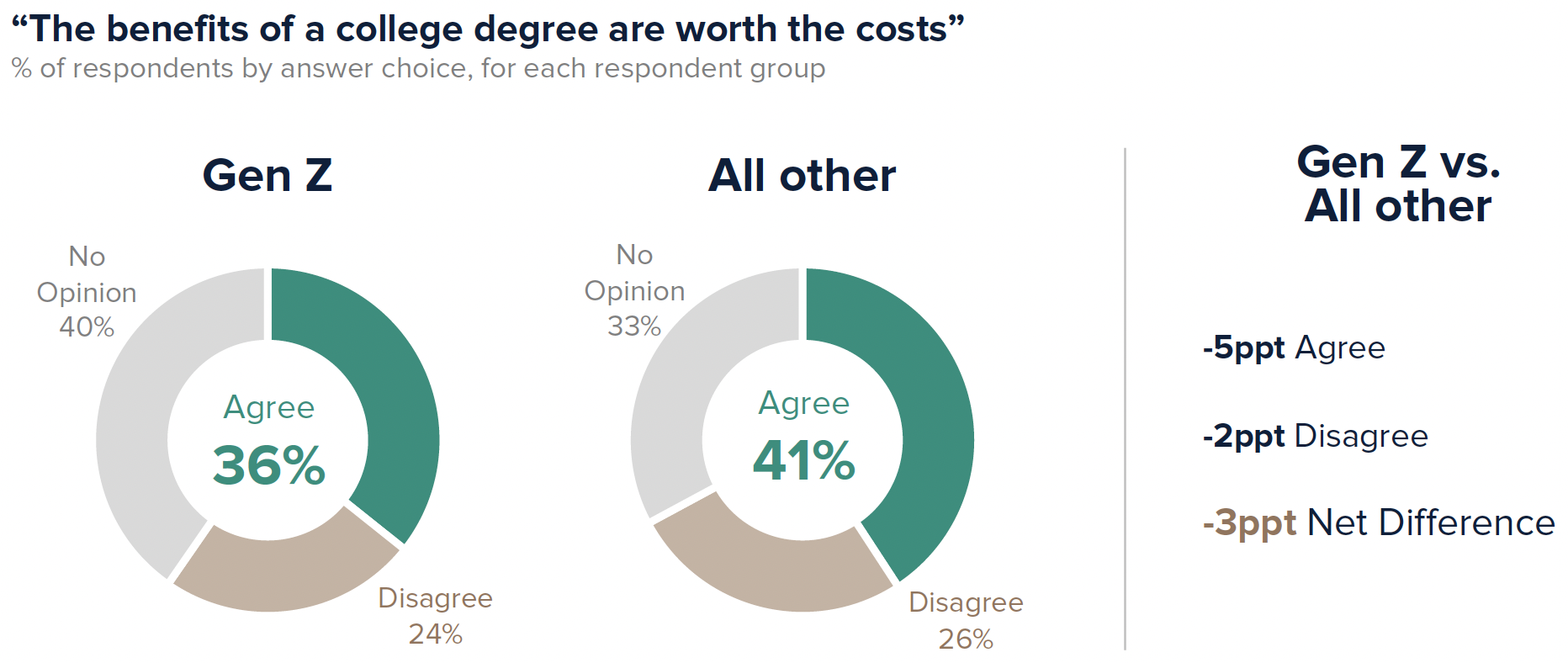
#17: Gen Z is slightly less likely to agree that college is worth the cost, compared to other generations.
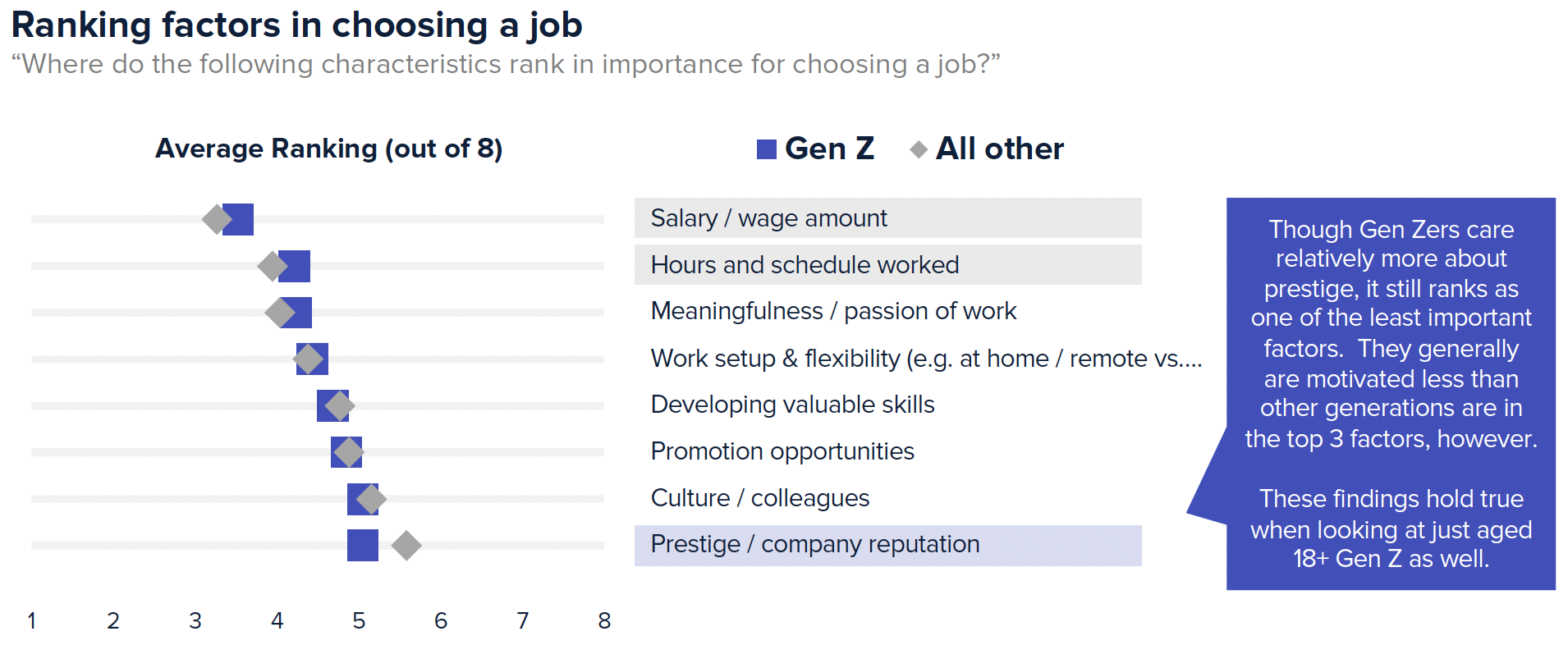
#18: Gen Z is more likely to care about an employer’s prestige or reputation and less likely to care about the hours they work or the schedule they have along with the passion they have for their work. The same as with other generations, the top factor for choosing a job is the position’s salary or wage.
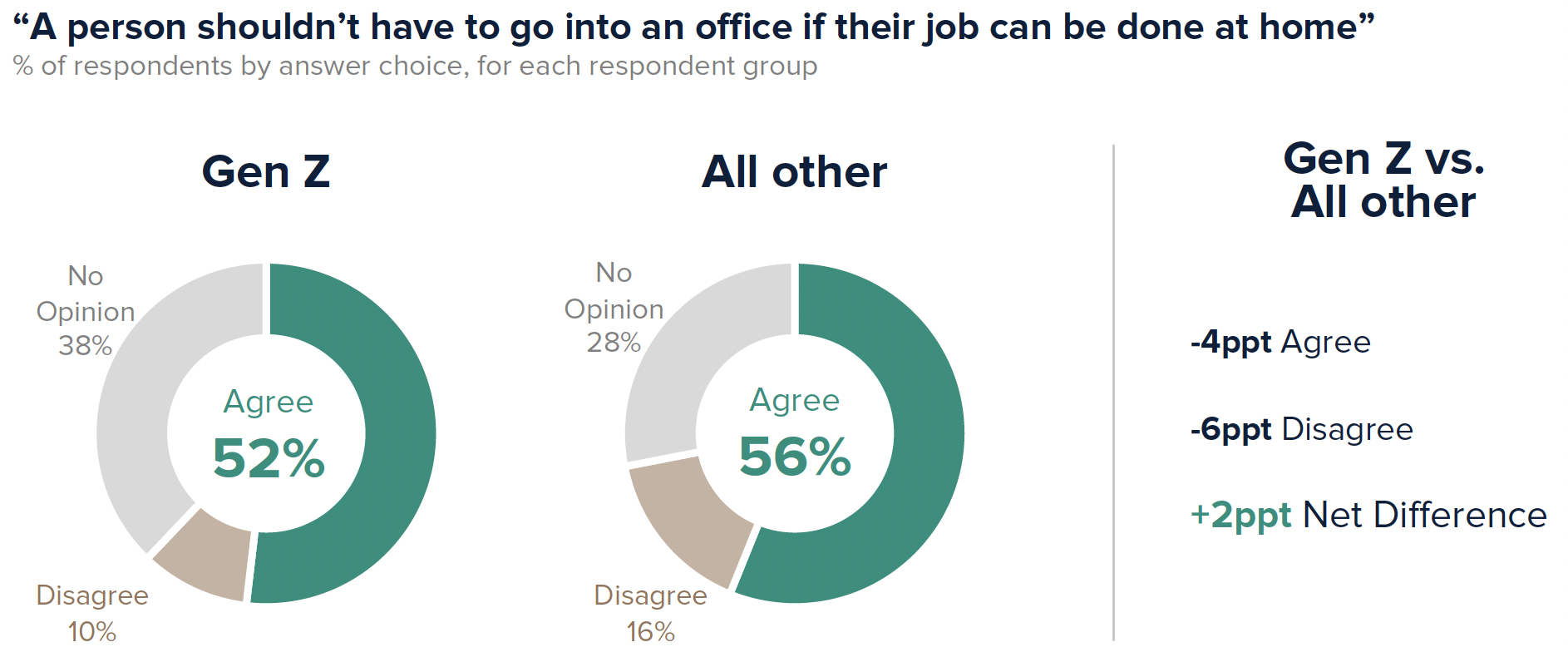
#19: Gen Zers are about as likely as other generations to agree that workers shouldn’t have to go into an office if they can do the work from home.
Check out the Medallia Market Research Suite webinar on Understanding Gen Z to discover even more Generation Z characteristics businesses need to learn more about.

























